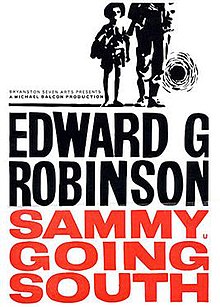
You only wear makeup if you’re going out or you’ve been crying. Rome in the 1970s, Clara (Penelope Cruz) is a nonconformist Spanish expatriate trapped in a loveless marriage to Felice (Vincenzo Amato) an unfaithful and abusive businessman, with whom she has three children: twelve-year old Adriana aka Adri (Luana Giuliani), Gino (Patrizio Francioni) and Diana (Maria Chiara Goretti). Adriana experiences gender dysphoria. Adriana rejects girlhood and instead identifies as a boy, wearing boys’ clothes and adopting the masculine name Andrea. One day, Andrea befriends Sara (Penelope Nieto Conti), a Romani girl who knows him as a boy. Upon a shared sense of being outsiders, Andrea and Clara grow closer. During the summer holidays Clara and the children go to a villa with her sisters- and mother-in-law (Alvia Reale) and all the young cousins. Adri is the ringleader when they explore a well and gets everyone into trouble, confronting Clara and taunting her into hitting her. After fantasising that a church service becomes a variety performance like the black and white TV shows she watches with Clara, Adri witnesses her father’s very young mistress Maria (India Santella) arriving at their apartment and she hears the woman declare that she is pregnant with Felice’s illegitimate child. Clara finally falls apart … You and Dad made me wrong. Is it too late to say that Cruz has come into her own and is a towering acting force in world cinema? She’s a powerhouse here yet her performance is not overwhelming – she shares the screen with a very cool kid who frankly could easily be male or female – and this is written so carefully that we understand Clara’s understanding of an eccentric child who declares she is the offspring of an alien and wants to spend her life in the sky. It only becomes problematic when Adri befriends and deceives Sara in the guise of ‘Andrea’ and becomes embroiled in a tentative pre-pubescent romance. Thankfully a deus ex machina prevents it from becoming the devastating betrayal that is threatened. The underlying tensions in the marriage are not openly discussed, they’re introduced subtly because almost everything here is from the children’s perspective as they try to navigate a wonderful mother and a distant disciplinarian father who makes her sad. Clara dresses in bright colours and pops off the screen whereas Adri is forced to wear white like the other girls in the Catholic school where the boys were black surplices. When Clara is hassled by guys following them on the street Adri protest to Clara, You are too beautiful. I am ugly. Both are outsiders, they have that in common. There is a remarkable balancing act performed here – the troubles of both mother and daughter are never overstated, both are fragile yet when Clara can no longer even talk about the cuckolding and the prospect of her husband’s bastard offspring, Adri bangs at the door of the bathroom where Clara has locked herself in and shouts, We’re the kids! You’re the grown up! It is the admission that Clara can’t cope after putting on the show of shows for her children. When she wants to play with the kids it’s Adri who tells her she can’t. Then, of course, Felice takes charge and does to Clara what all husbands do when they’re found out. Immaculately staged and performed, this is a joy for anyone interested in Italian interiors circa 1972 with wonderful use of space and light, geometric patterns and amazing wallpaper in a developing suburb that if it were in an American movie would become a location for poltergeists. Everything is heightened by the marvellous costume design by Massimo Cantini Parrini and the performances of contemporary singers, including the title song and Adriano Celentano’s nonsense song Prisencolinensinainciusol. Above all, this is a beguiling family drama about people and a place in transition and sensibly offers no easy answers. Directed by Emanuele Crialese, who co-wrote the semi-autobiographical screenplay with Francesca Manieri and Vittorio Moroni. Inside everything another thing is always hiding

